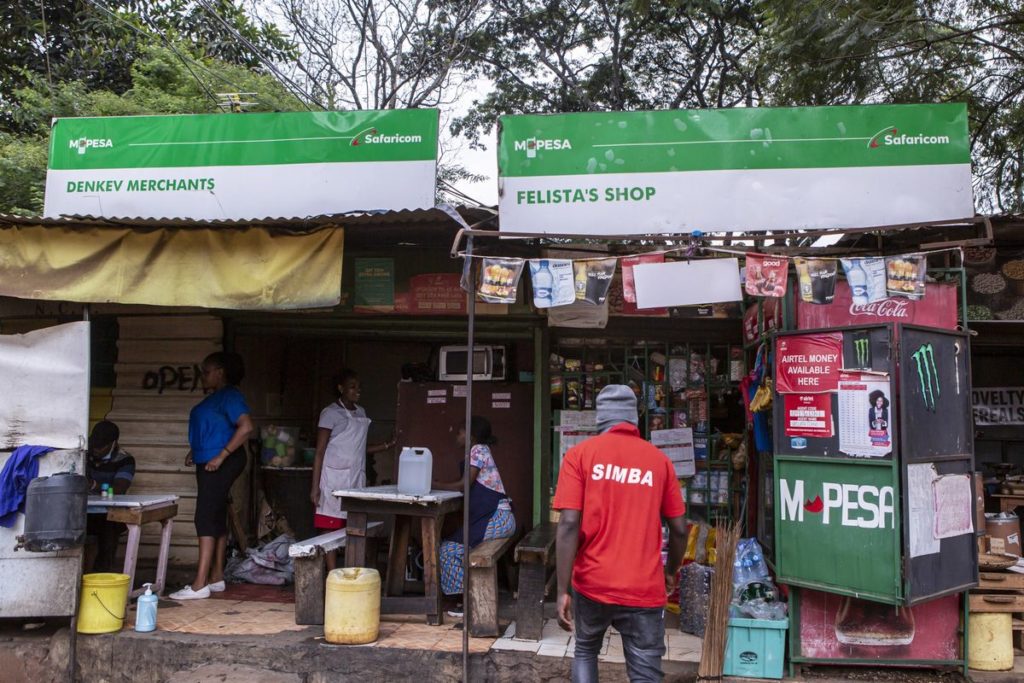Safaricom Plc first-half profit jumped as the company reinstated charges on mobile-money transfers and its customer base grew, Chief Executive Officer Peter Ndegwa told investors on Wednesday.
Africa’s second-biggest company by market value said net income rose 12% to 37.1 billion shillings ($332 million) in the six months through September. Sales on Safaricom’s money transfer and payments platform, M-Pesa, grew by 46%, boosting service revenue to 138.4 billion shillings, Chief Finance Officer Dilip Pal said at a briefing in the capital, Nairobi.
The value of M-Pesa transactions grew 51.5% year-on-year boosting total revenue to 146.4 billion shillings. The number of customers who use Safaricom services each month increased 4.7% to 31.75 million from a year earlier, Pal said.
The company expects earnings before interest and taxes in the 2022 financial year to be in the range of 97 billion shillings to 100 billion shillings, and capital expenditure of 70 billion shillings to 73 billion shillings, Ndegwa said. The projections are partly based on the expected economic recovery in Kenya and expansion plans in Ethiopia, the CEO said.
Ethiopia remains a “long-term play” for Safaricom, with the capital expenditure for the expansion there at between $1.5 billion and $2 billion over the next five years, Ndegwa said in an interview after the briefing.
The Safaricom-led consortium is looking into equity and foreign-debt funding for Ethiopia, according to Ndegwa. The business could also borrow from domestic lenders as part of a strategy to manage foreign exchange, he said.
Local financing options the company is considering include term facilities, according to Pal. “We are very hopeful that the combination of the development finance institutions that we’re working on will be able to close pretty quickly, ahead of any requirement for funds, Pal said.
Safaricom has mapped out possible risks from implementation of market liberalization to the new regulatory frameworks in Ethiopia, according to Ndegwa. However, “the opportunities outweigh the risks in our view, and the uncertainties, largely because the telecoms market liberalization has been unquestionably positive,” he said.
The company’s stock rose 1% at 40.50 shillings at 2.29 p.m. in Nairobi. The company trades at 21 times its estimated earnings per share for the coming year.
